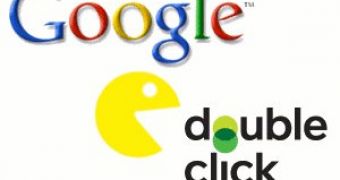Google took a serious blow below the belt yesterday with the European Commission competition authorities refusing to approve its 3.1 billion $ purchase of the Internet advertising company DoubleClick and ordering that a further review of the deal be made that could last until March.
"We are obviously disappointed", said Eric Schmidt, chief executive of Google, in a statement. "We will continue to work with the commission to demonstrate how our proposed acquisition will benefit publishers, advertisers and consumers. We seek to avoid further delays that might put us at a disadvantage in competing fully against Microsoft, Yahoo, AOL and others whose acquisitions in the highly competitive online advertising market have already been approved."
The deal was approved in Australia a couple of weeks ago and there are signs that it will not encounter many stops on its way to happening in the US either, despite the fierce opposition that Microsoft is trying to put up. The only place Google expected to have some trouble is in Europe. The European Commission which rules on antitrust issues for the 27 countries in the European Union said that a more thorough investigation of its impact on the Internet advertising business was necessary. The initial investigation "indicated that the proposed merger would raise competition concerns in the markets for intermediation and ad serving in online advertising", according to the report the commission made.
Google seemed to be scared that this might happen and as the date of the final decision was approaching, it started to give the commission what some analysts termed as "concessions." It made some assurances to "keep certain DoubleClick business practices unchanged", as Julia Holtz, Google's London-based competition counsel stated.
This deal would mean the world to Google, because it would give the Mountain View based company the lead in graphical ads to add to its hall of fame panel next to the 70-80 percent lead that it has in the paid-search advertising market. No wonder they want it so badly.

 14 DAY TRIAL //
14 DAY TRIAL //